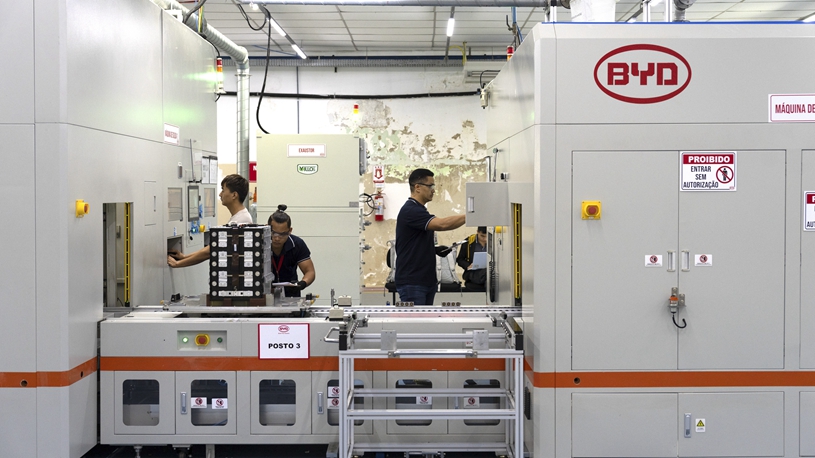For Monica Mudonhi, a rabbit farmer in Ruwa, about 22 km to the southeast of Harare, the capital of Zimbabwe, the joy of her rabbits kindling is unmatched. "Being around my rabbits, especially when you know that they want to kindle, especially during the day, you don't sit down," she said.
RUWA, Zimbabwe, March 18 (Xinhua) -- For Monica Mudonhi, a rabbit farmer in Ruwa, about 22 km to the southeast of Harare, the capital of Zimbabwe, the joy of her rabbits kindling is unmatched. "Being around my rabbits, especially when you know that they want to kindle, especially during the day, you don't sit down," she said.
At 68, Mudonhi has been breeding rabbits for about three years, and it has become more than just a source of income; it is a way of life. "Even if I go somewhere, as soon as I park my car, I come to the rabbitry straight. It is a habit now," she said.
Mudonhi is among the beneficiaries of a Chinese-funded rabbit farmer training program by the Zimbabwe Commercial Rabbit Breeders Association (ZICORBA). The program aims to equip farmers with the knowledge and tools needed for successful rabbit farming, covering topics like rabbit husbandry, breeding techniques, disease management and market access.
More than 200 people, including Mudonhi, attended the inaugural training program in Harare at the end of February. "I think it is a good program which is being run around Zimbabwe. I wish people could attend, even those without rabbits," she said.
ZICORBA, established in 2020, aims to uplift the livelihoods of 1.5 million households in Zimbabwe through rabbit farming, according to ZICORBA President Regis Nyamakanga. "We are trying to create not just a farmer who is doing subsistence farming, but we are looking at a business person who derives livelihood from rabbit production," he said.
In Zimbabwe, the white meat segment has been dominated by chicken and fish. Thanks to ZICORBA, however, rabbit meat is now becoming a popular option on dining tables across the country. Nyamakanga attributed this to the growing demand for rabbit meat among health-conscious consumers, as it is low in cholesterol and fats.
This growing demand has presented a lucrative business opportunity for farmers like Mudonhi. "A lot of farmers are coming into rabbit production because of the quick returns that you get out of rabbit production," Nyamakanga said.
Since the establishment of ZICORBA, the demand for rabbit meat in Zimbabwe has grown significantly, with producers struggling to meet the demand. "Currently we are producing about 10 tonnes per month in Zimbabwe. The target is to reach about 25 tonnes a month and plus," Nyamakanga added.
Value addition initiatives in the rabbit sub-sector are also gaining traction, with the introduction of rabbit burgers, pies, pizzas, sausage rolls, biltong, among other products.
Nyamakanga said that a demonstration village has been set up in Zvimba District near Harare, and Chinese technical experts are working with ZICORBA to develop a curriculum and offer technical advice.
Mudonhi, who now wants to expand her rabbitry, sees great potential in the market for exports. She believes that rearing rabbits is an ideal project for people of all ages as it requires minimal land and resources compared to other livestock.
"I am sharing the knowledge that I have received from the training with others who ask me about what they want to know about rabbits. But if it is a complicated question which I cannot handle, I refer them to the trainers," she added.
Paida Nyamakanga, executive director of Raymeg, a corporate member of ZICORBA, praised the Chinese-funded training program for farmers. "We are really grateful to the training that was conducted by ZICORBA with aid from China because quite a number of rabbit farmers did not have requisite skills and knowledge on how to farm," she said.
She also highlighted the potential for exports to China, the largest consumer of rabbit meat, if the right measures are implemented. "We have taken some measures to tap into the Chinese market, firstly by doing a bit of research on what their needs are, and checking on what we need to do in order to be prepared for that market," she said. ■









